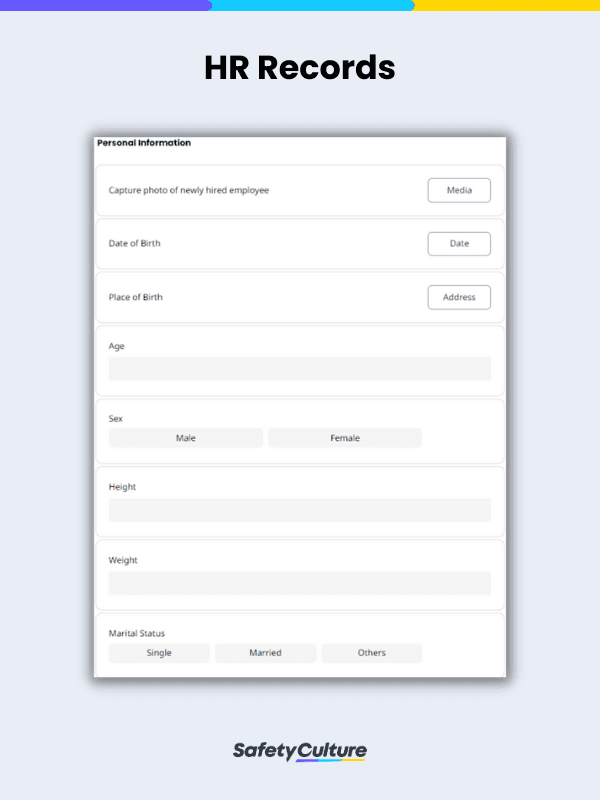What are HR Records?
HR records or Human Resource records are informational documents utilized by HR professionals and organizations to carry out their functions. It is a documented list of activities and evidence which helps employees and organizations support regulatory requirements, emergency plans, insurance claims, and employee qualifications and promotion.
Importance of HR Records
HR records are essential documents needed by a company, regardless of industry. It contains significant information such as employee transcripts, incident reports, budget, and organized events. Keeping and securing these records help the organization in:
- analyzing existing problems at the workplace;
- evaluating if policies are regulated, standardized, and up to date;
- capturing information on how resources are managed;
- preparing employee training needs; and
- reinforcing safeguards against employee disclosure of confidential records.
Types of HR Records
HR records include data from minutes of meetings, orders, program implementation, and employee submissions. The following are essential types of HR records an organization, usually organized by the talent acquisition team, should gather:
Employee records
Employee records or files are a compilation of personal information, performance, and status of each employee. It is classified into four subcategories:
- Pre-employment records
New hires or employees are required to submit personal data documents such as medical and employment history, emergency contact numbers, and employment contracts including benefits and salary offers. - Onboarding records
Upon joining the organization all employees must attend employee onboarding and induction to avoid tendencies of negligence to health and safety regulations. Attendance confirmation must be reflected in employee records. - Past and current Performance records
All employees are measured and benchmarked according to their performances. It is a documented evaluation of contributions, achievements and any possible disciplinary actions. Keeping a record would help management’s decision for employee appraisal or termination. - Offboarding records
Offboarding employees must complete a clearance form from the organization. It should be kept as part of employee records to ensure a seamless separation. This would ensure clear communication to avoid exposing organizations to legal, security and reputational risks.
Recreational Records
All company activities must be documented including the type of event, objective, plan, and budget. This would set transparency with business owners and serve as evidence on where the annual budget was allocated and used.
Incident Reports
All incidents including accident or near miss must be recorded to fulfill regulatory requirements (such as OSHA 300 Forms in the United States). These records may help the organization in analyzing safety and security improvement needs and can support personal or business insurance claims.
Training Feedback
It is a compilation of gathered feedback from the participant(s) regarding training programs, facilitators, and training facilities. This record would help identify employee skill gaps and training needs. Also, it helps in providing employee assistance, and assessing and improving the overall experience of training programs.
Inventory Records
All purchases must be properly documented including equipment, daily operation, facility improvement and more. These records will be used by the organization as evidence for business compliance with regulatory requirements. Also, it helps identify if assets are enough for business’ deliverables.
Proper Retention of HR Records
HR department retains and destroys employee records in accordance with federal and state laws governing record retention such as EEOC Regulations, ADEA, and FLSA recordkeeping requirements.
- EEOC Regulations state that employers should keep all employment records for one year from the date of termination or separation.
- ADEA recordkeeping requirements state that employers must keep all payroll records including benefit plans for three years. Also, any written merit and performance record should be kept at least one year after employee termination.
- FLSA recordkeeping requirements applicable to the EPA state that employers must keep payroll records for at least three years, while other records such as wage rates, job evaluations, seniority, and merit systems should be kept for at least two years.



